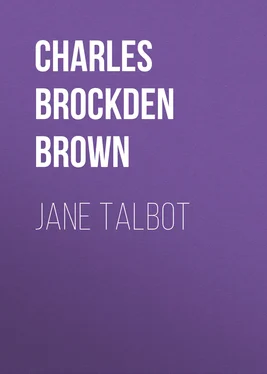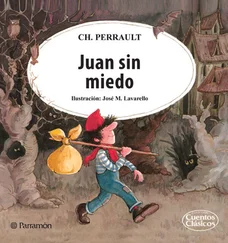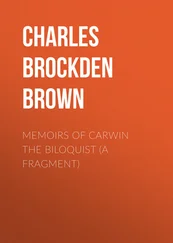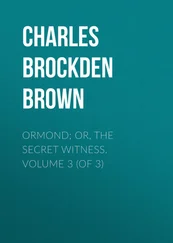Charles Brown - Jane Talbot
Здесь есть возможность читать онлайн «Charles Brown - Jane Talbot» — ознакомительный отрывок электронной книги совершенно бесплатно, а после прочтения отрывка купить полную версию. В некоторых случаях можно слушать аудио, скачать через торрент в формате fb2 и присутствует краткое содержание. Жанр: foreign_prose, foreign_antique, на английском языке. Описание произведения, (предисловие) а так же отзывы посетителей доступны на портале библиотеки ЛибКат.
- Название:Jane Talbot
- Автор:
- Жанр:
- Год:неизвестен
- ISBN:нет данных
- Рейтинг книги:5 / 5. Голосов: 1
-
Избранное:Добавить в избранное
- Отзывы:
-
Ваша оценка:
- 100
- 1
- 2
- 3
- 4
- 5
Jane Talbot: краткое содержание, описание и аннотация
Предлагаем к чтению аннотацию, описание, краткое содержание или предисловие (зависит от того, что написал сам автор книги «Jane Talbot»). Если вы не нашли необходимую информацию о книге — напишите в комментариях, мы постараемся отыскать её.
Jane Talbot — читать онлайн ознакомительный отрывок
Ниже представлен текст книги, разбитый по страницам. Система сохранения места последней прочитанной страницы, позволяет с удобством читать онлайн бесплатно книгу «Jane Talbot», без необходимости каждый раз заново искать на чём Вы остановились. Поставьте закладку, и сможете в любой момент перейти на страницу, на которой закончили чтение.
Интервал:
Закладка:
"My brother's bond will be of no use to me; I shall never go to law with my brother."
"Well, then, what will satisfy you?"
"I am easily satisfied, brother. I am contented with things just as they are. The sum, indeed, is a trifle, but it will answer all my humble purposes."
"Then you will," replied he, struggling with his rage, "you will not agree?"
My silence was an unequivocal answer.
"You turn out to be what I always thought you,–a little, perverse, stupid, obstinate–But take time;" (softening his tone a little;) "take time to consider of it.
"Some unaccountable oddity, some freak, must have taken hold of you just now and turned your wits out of door. 'Tis impossible you should deliberately reject such an offer. Why, girl, three thousand dollars has a great sound, perhaps, to your ears, but you'll find it a most wretched pittance if you should ever be obliged to live upon it. The interest would hardly buy you garters and topknots. You live, at this moment, at the rate of six times the sum. You are now a wretched and precarious dependant on Mrs. Fielder: her marriage (a very likely thing for one of her habits, fortune, and age) will set you afloat in the world; and then where will be your port? Your legacy, in any way you can employ it, will not find you bread. Three times the sum might answer, perhaps; and that, if you will fall on my advice, you may now attain in a single twelvemonth. Consider these things, and I will call on you in the evening for your final answer."
He was going, but I mustered resolution enough to call him back:–"Brother, one word. All deliberation in this case is superfluous. You may think my decision against so plausible a scheme perverse and absurd; but, in this instance, I am fully sensible that I have a right to do as I please, and shall exert that right, whatever censure I may incur."
"So, then, you are determined not to part with your paltry legacy?"
"I am determined not to part with it."
His eyes sparkled with rage, and, stamping on the floor, he exclaimed, "Why, then, let me tell you, miss, you are a damned idiot. I knew you were a fool, but could not believe that your folly would ever carry you to these lengths!"–Much more in this style did poor Frank utter on this occasion. I listened trembling, confounded, vexed, and, as soon as I could recover presence of mind, hastened out of his presence.
This dialogue occupied all my thoughts during that day and the following. I was sitting, next evening, at twilight, pensively, in my own apartment, when, to my infinite surprise, my brother was announced. At parting with him the day before, he swore vehemently that he would never see my face again if he could help it. I supposed this resolution had given way to his anxiety to gain my concurrence with his schemes, and would fain have shunned a second interview. This, however, was impossible. I therefore composed my tremors as well as I was able, and directed him to be admitted. The angry emotions of yesterday had disappeared from his countenance, and he addressed me with his customary carelessness. After a few trifling preliminaries, he asked me if I had considered the subject of our yesterday's conversation. I answered that I had supposed that subject to have been dismissed forever. It was not possible for time or argument to bring us to the same way of thinking on it. I hoped, therefore, that he would not compel me to discuss it a second time.
Instead of flying into rage, as I expected, he fixed his eyes thoughtfully on the floor, and, after a melancholy pause, said, "I expected to find you invincible on that head. To say truth, I came not to discuss that subject with you anew. I came merely to ask a trifling favour." Here he stopped. He was evidently at a loss how to proceed. His features became more grave, and he actually sighed.
My heart, I believe thou knowest, Harry, is the sport, the mere plaything, of gratitude and pity. Kindness will melt my firmest resolutions in a moment. Entreaty will lead me to the world's end. Gentle accents, mournful looks, in my brother, was a claim altogether irresistible. The mildness, the condescension which I now witnessed thrilled to my heart. A grateful tear rushed to my eye, and I almost articulated, "Dear, dear brother, be always thus kind and thus good, and I will lay down my life for you."
It was well for us both that my brother had too much pride or too little cunning to profit by the peculiarities of my temper. Had he put a brotherly arm around me, and said, in an affectionate tone, "Dear sister, oblige me," I am afraid I should have instantly complied with the most indiscreet and extravagant of his requests.
Far otherwise, however, was his deportment. This condescension was momentary. The words had scarcely escaped him before he seemed to recollect them as having been unworthy of his dignity. He resumed his arrogant and careless air, half whistled "ça ira," and glanced at the garden, with, "A tall poplar that. How old?"
"Not very old, for I planted it."
"Very likely. Just such another giddy head and slender body as the planter's. But, now I think of it, Jane, since your money is idle, suppose you lend me five hundred dollars of it till to-morrow. Upon my honour, I'll repay it then. My calls just now are particularly urgent. See here; I have brought a check ready filled. It only wants your signature."
I felt instant and invincible repugnance to this request. I had so long regarded my brother as void of all discretion, and as habitually misapplying money to vicious purposes, that I deemed it a crime of no inconsiderable degree to supply the means of his prodigality. Occasions were daily occurring in which much good was effected by a few dollars, as well as much evil produced by the want of them. My imagination pondered on the evils of poverty much oftener than perhaps was useful, and had thence contracted a terror–of it not easily controlled. My legacy I had always regarded as a sacred deposit,–an asylum in distress which nothing but the most egregious folly would rob or dissipate. Yet now I was called upon to transfer, by one stroke of the pen, to one who appeared to me to be engaged in ruinous vices or chimerical projects, so large a portion as five hundred dollars.
I was no niggardly hoarder of the allowance made me by my mother; but so diffident was I of my own discernment, that I never laid out twenty dollars without her knowledge and concurrence. Could I then give away five hundred of this sacred treasure, bestowed on me for very different purposes, without her knowledge? It was useless to acquaint her with my brother's request and solicit her permission. She would never grant it.
My brother, observing me hesitate, said, "Come, Jane; make haste. Surely this is no such mighty favour, that you should stand a moment. 'Twill be all the same to you, since I return it to-morrow. May I perish if I don't!"
I still declined the offered pen:–"For what purpose, brother, surely I may ask?–so large a sum?"
He laughed:–"A mere trifle, girl;'tis a bare nothing. But, much or little, you shall have it again, I tell you, to-morrow. Come; time flies. Take the pen, I say, and make no more words about the matter."
"Impossible, till I know the purpose. Do not urge me to a wrong thing."
His face reddened with indignation. "A wrong thing! you are fool enough to tire the patience of a saint. What do I ask, but the loan of a few dollars for a single day? Money that is absolutely idle; for which you have no use. You know that my father's property is mine, and that my possessions are twenty times greater than your own; yet you refuse to lend this paltry sum for one day. Come, Jane, sister; you have carried your infatuation far enough. Where a raw girl should gain all these scruples and punctilios I can't imagine. Pray, what is your objection?"
Читать дальшеИнтервал:
Закладка:
Похожие книги на «Jane Talbot»
Представляем Вашему вниманию похожие книги на «Jane Talbot» списком для выбора. Мы отобрали схожую по названию и смыслу литературу в надежде предоставить читателям больше вариантов отыскать новые, интересные, ещё непрочитанные произведения.
Обсуждение, отзывы о книге «Jane Talbot» и просто собственные мнения читателей. Оставьте ваши комментарии, напишите, что Вы думаете о произведении, его смысле или главных героях. Укажите что конкретно понравилось, а что нет, и почему Вы так считаете.












